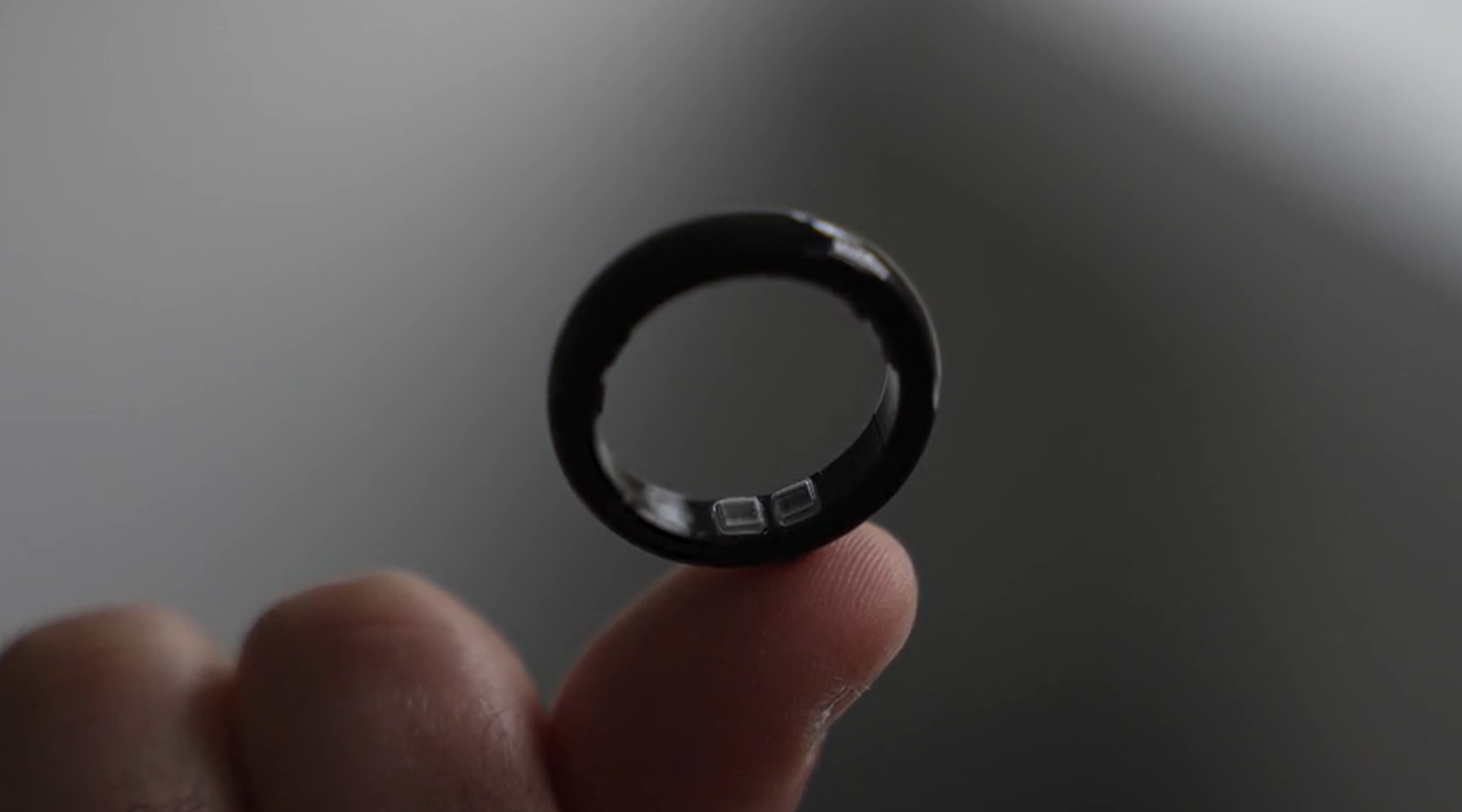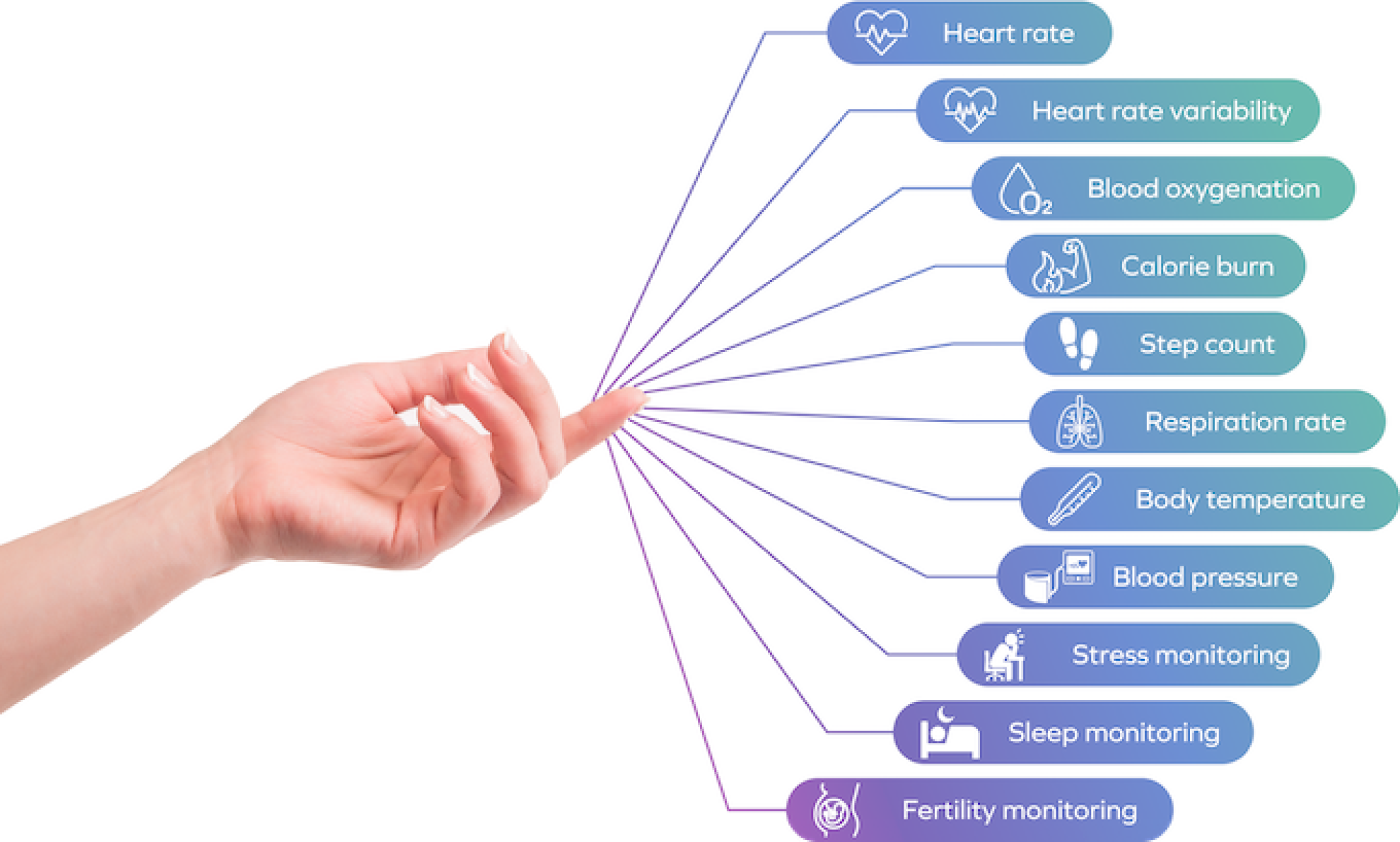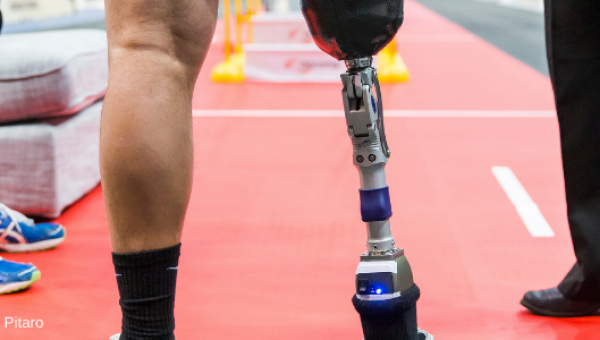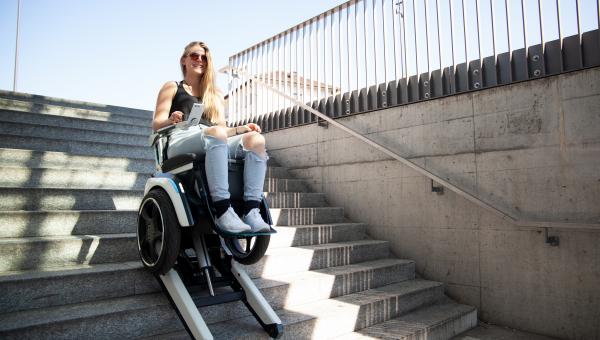A smart ring for improved health monitoring

An unremarkable ring from EPFL spin-off could soon take our health monitoring to a new level.
In recent years, an increasing number of wearable devices have evolved to allow accurate, non-invasive monitoring of vital parameters like heart rate, blood pressure or breathing rate. But in most cases, this requires a wristband or smartwatch that can quickly become cumbersome, is not very accurate due to the wrist’s physiology and causes discomfort during sleep. Thanks to a sensor, which was recently developed at EPFL and is the smallest in the world, all data can now be collected via a regular finger ring from Senbiosys.
World’s smallest sensor
After several years of miniaturisation research and more than 60 scientific publications on microelectronics and optical sensors, two EPFL engineers have developed a technology that concentrates all the monitoring capabilities of photoplethysmogram (PPG) sensors into an area that is four times smaller than that found in competing devices on the market, breaking all records, writes EPFL. PPG is a simple optical technique used to detect volumetric changes in blood in peripheral circulation. PPG sensors are mostly used by wearable devices and distinguishable by the coloured LED light they emit.
Velia smart ring steps into a new era
The Velia smart ring, developed by the start-up Senbiosys, is not the first wearable ring, but thanks to miniaturisation of the sensors it has various benefits, according to Senbiosys. The ring is thinner, lighter and more elegant than existing wearables, making it more comfortable and affordable than other solutions. It is touted as the slimmest ring on the market, measuring 5mm in diameter and 2.5mm in thickness and weighing less than 5g. It runs on very little power and is fully chargeable in just half an hour.
It contains 18 LEDs and six photodetectors, allowing for enhanced accuracy relative to existing products. To check the accuracy, Senbiosys carried out a clinical study of its technology at HFR Fribourg hospital, comparing heart rate data collected by its miniaturised sensors with those collected by an arterial catheter. The study found that the two methods gave comparable readings.
A market novelty
The Velia ring, expected to be launched in December 2023, will measure heart rate, step count, blood oxygen, sleep quality, core body temperature and more. What experts find most intriguing is the claimed ability to track blood pressure from the finger, which would be a novel feature for a smart ring. Users would be able to track their blood pressure discreetly and easily, without having to interrupt their daily activities or visit a doctor’s surgery.

Various measurements are possible with the Iris smart ring.
To take the pulse of the market, the founders decided to launch a crowdfunding campaign. The campaign, which began in mid-February on Kickstarter with an initial target of CHF 100,000, has attracted over 4,000 backers and raised in excess of CHF 650,000.




